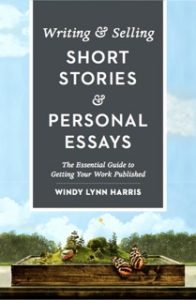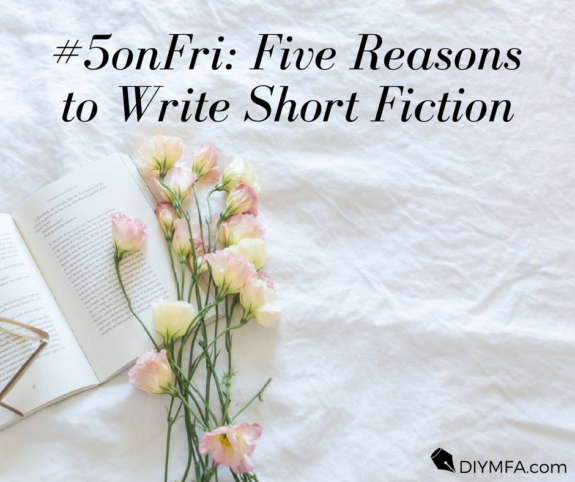Many writers picture their name on the cover of a book and march toward that goal in a straight line, not stopping to enjoy other great opportunities to get published along the way. If that sounds like you, you might be missing out on some very rewarding writing time. Writing a short piece of fiction or a personal essay is a fun creative challenge and can be incredibly meaningful to a writer’s career. Bonus: They’re faster to complete than a book! In fact, you can write short pieces while that book comes together, giving you two projects (or more) to see published. Here are five more great reasons you might consider writing something short this year:
1) The opportunities are plentiful
There are over 2,000 literary magazine editors waiting for submissions of short stories and personal essays this week. That means there’s room for a voice like yours, no matter what you like to write. Literary writers, humor writers, poetic writers, historical fiction writers, memoirists, sci-fi writers, speculative fiction writers—you name it—have a place for publication in the short form.
2) You can submit your work without a literary agent
Writing short is a terrific way for writers to break into traditional publishing before landing an agent. Short stories and personal essays are mailed from a writer’s desk directly to magazine editors. No third party necessary!
 3) It’s a great way to experiment with an idea without making a huge commitment
3) It’s a great way to experiment with an idea without making a huge commitment
Not sure if you’re going to include that car accident in your memoir? Try writing an essay about it first. See if you’ve got something universal to say about that tragic day. Another idea: Do you want to get to know one of your novel characters better? Set them in a short story and give them a problem to solve. Writing short will give you clarity about your book-project idea and it might just become something you sell to a magazine.
4) You gain resume material with each magazine byline
Magazine credits give you something to write in the bio section of query letters to literary agents and book publishers, plus they give you credibility when filling out those residency applications, grant proposals, and master class applications. You can also showcase your publishing credits on your website, your Twitter profile, and your Facebook page.
5) You might get noticed by a literary agent
One way to avoid the book-manuscript slush pile is to have a literary agent come to you. Yes—it really does happen. Literary agents and their assistants read literary magazines to discover new talent. And not only in the prose! I know of one writer who snagged the eye of an agent because the novel-in-progress she mentioned in her bio was exactly what the agent had been looking for.
Writing short is a terrific way to gain exposure in the industry while learning your craft. If you’d like to know more about how to succeed with creative shorts, Writing Short Stories and Personal Essays: The Essential Guide to Getting Your Work Published (Writer’s Digest Books) is a great place to start.
 Windy Lynn Harris is the author of Writing & Selling Short Stories & Personal Essays: The Essential Guide to Getting Your Work Published (from Writer’s Digest Books) and the founder of Market Coaching for Creative Writers, a mentoring program that teaches writers how to get their short work published in magazines. She’s a prolific writer, a trusted mentor, and a frequent speaker at literary events. Her long list of short stories and personal essays have been published in literary, trade, and women’s magazines across the U.S. and Canada in places like The Literary Review, The Sunlight Press, and Literary Mama, among many other journals. She is also a developmental editor-for-hire, specializing in short stories and personal essays. She teaches the craft of writing in person and online. More about Windy at her website: www.windylynnharris.com.
Windy Lynn Harris is the author of Writing & Selling Short Stories & Personal Essays: The Essential Guide to Getting Your Work Published (from Writer’s Digest Books) and the founder of Market Coaching for Creative Writers, a mentoring program that teaches writers how to get their short work published in magazines. She’s a prolific writer, a trusted mentor, and a frequent speaker at literary events. Her long list of short stories and personal essays have been published in literary, trade, and women’s magazines across the U.S. and Canada in places like The Literary Review, The Sunlight Press, and Literary Mama, among many other journals. She is also a developmental editor-for-hire, specializing in short stories and personal essays. She teaches the craft of writing in person and online. More about Windy at her website: www.windylynnharris.com.







